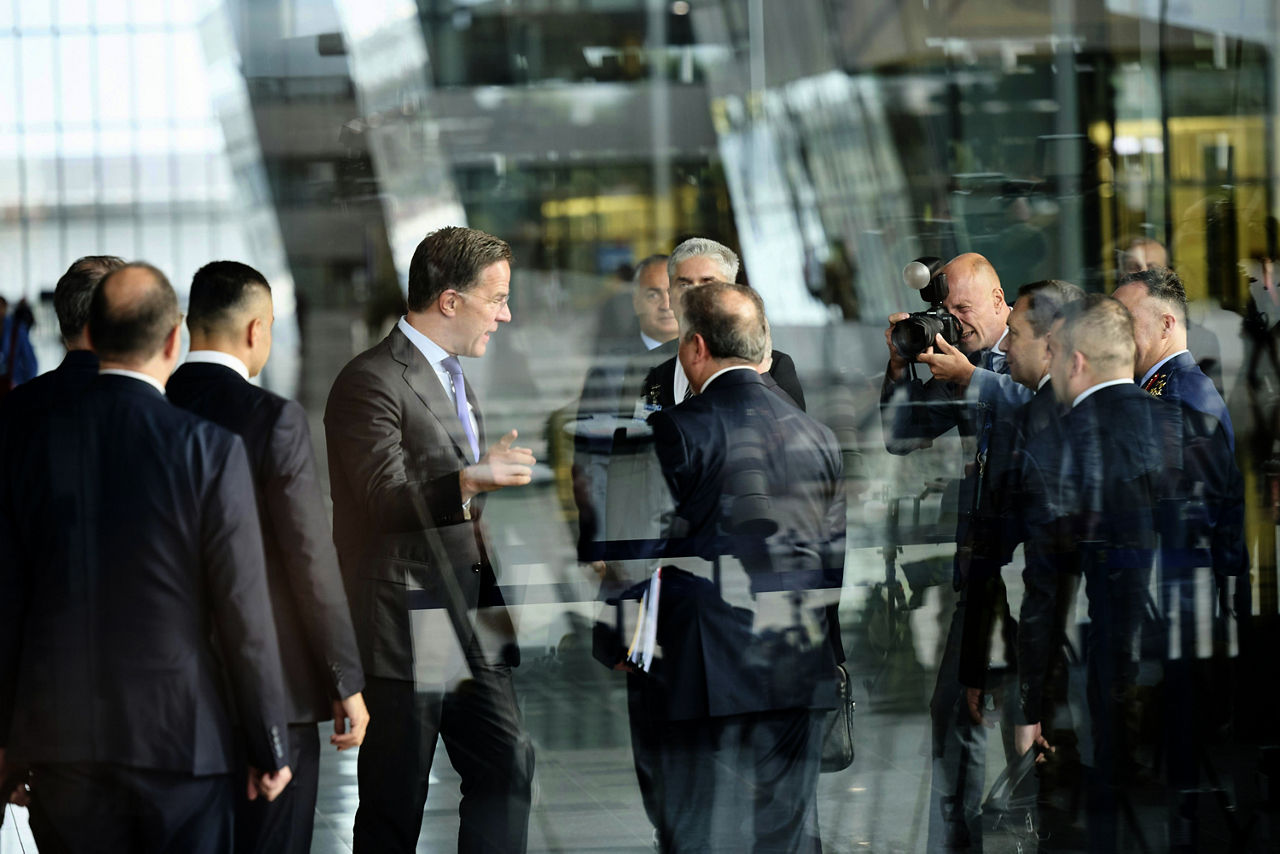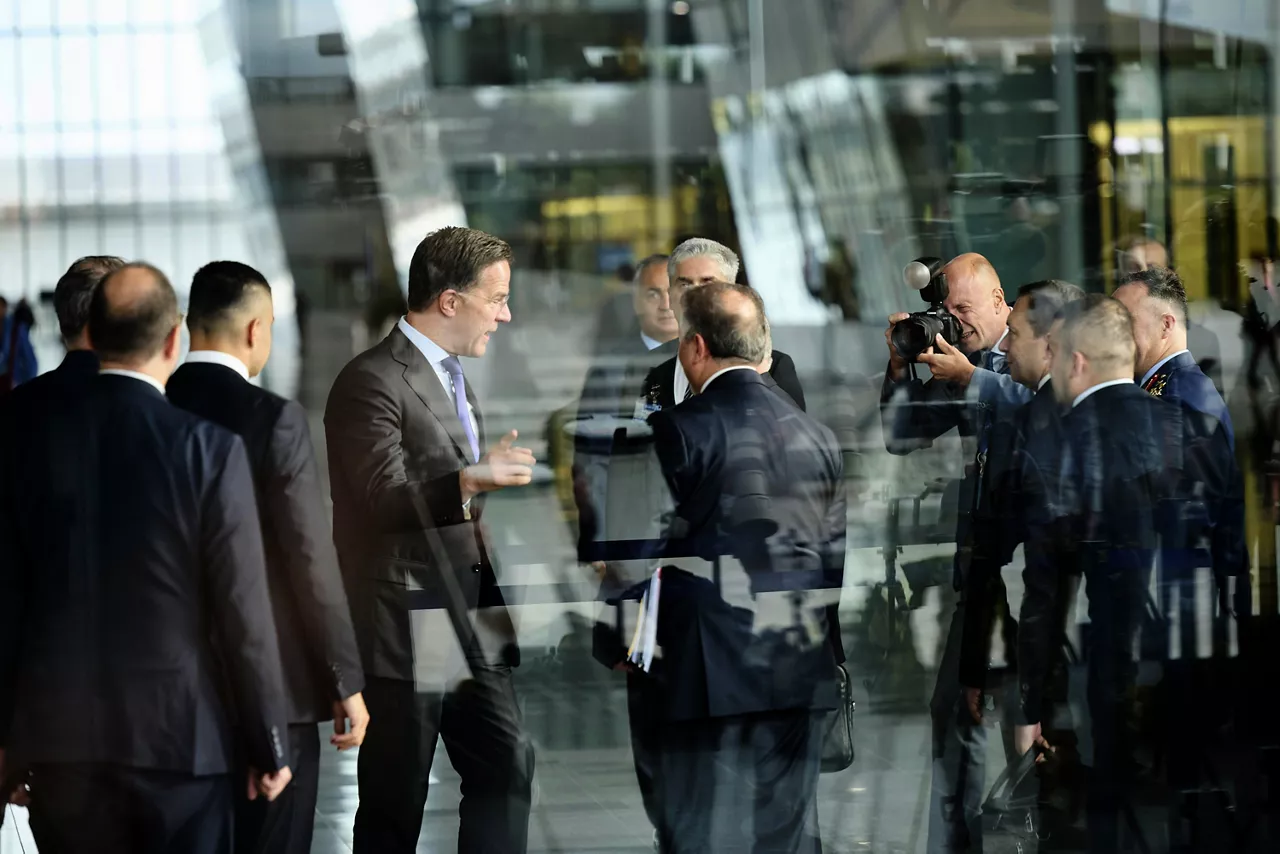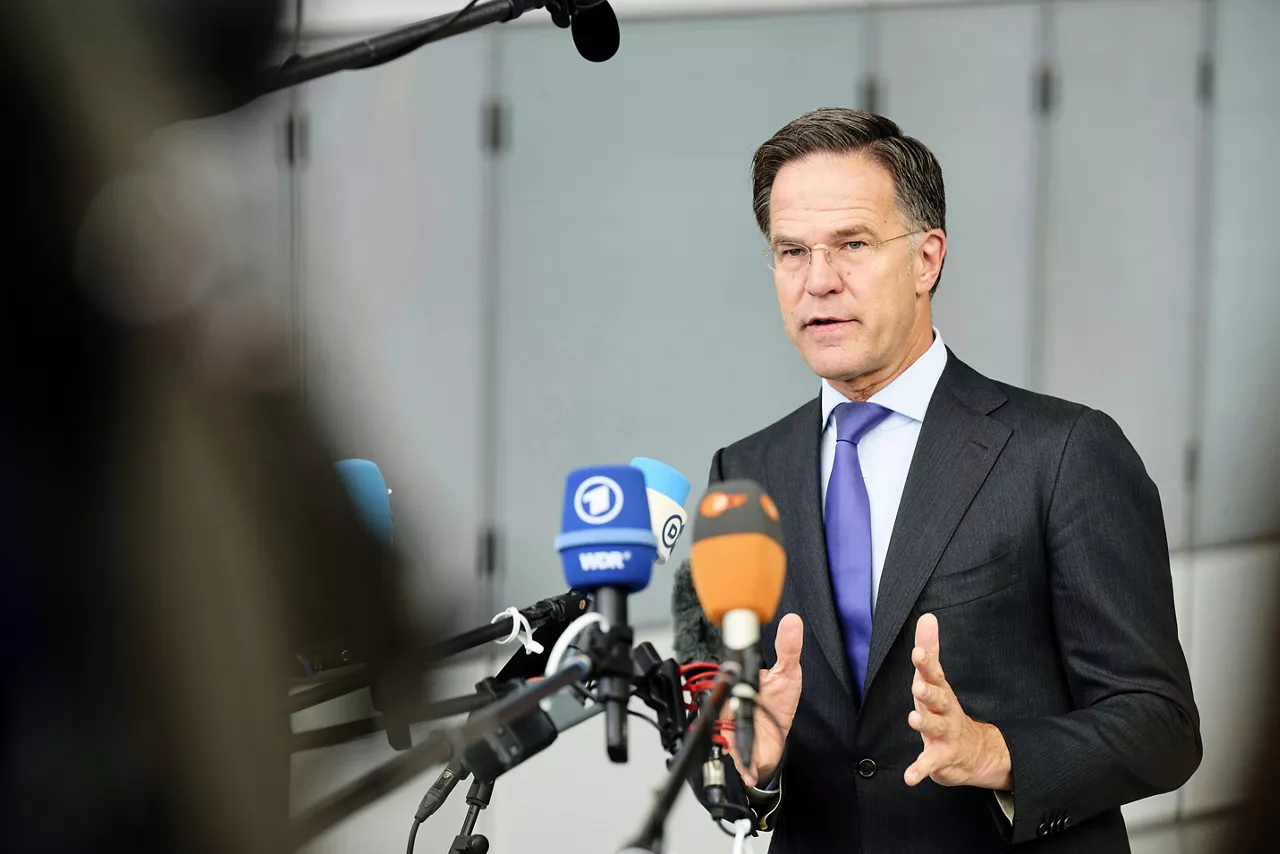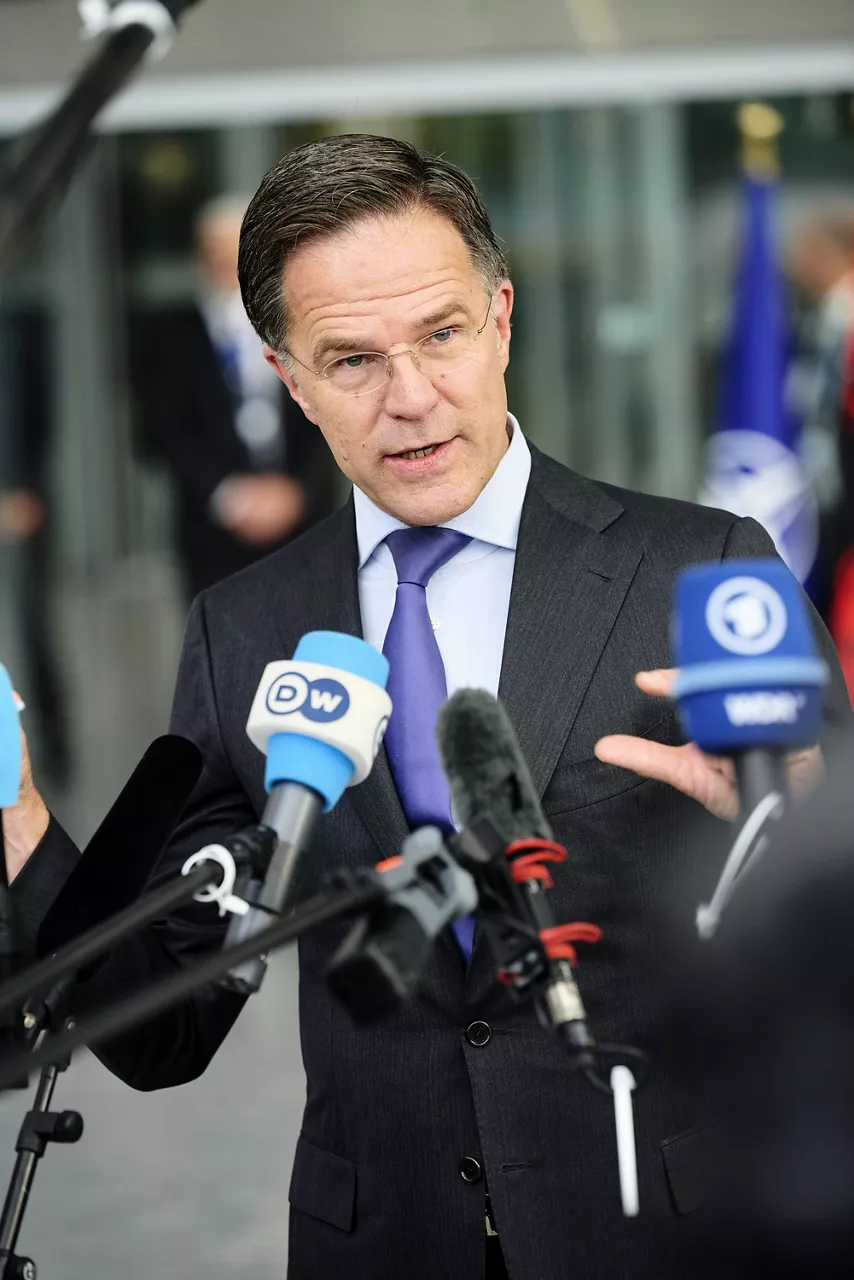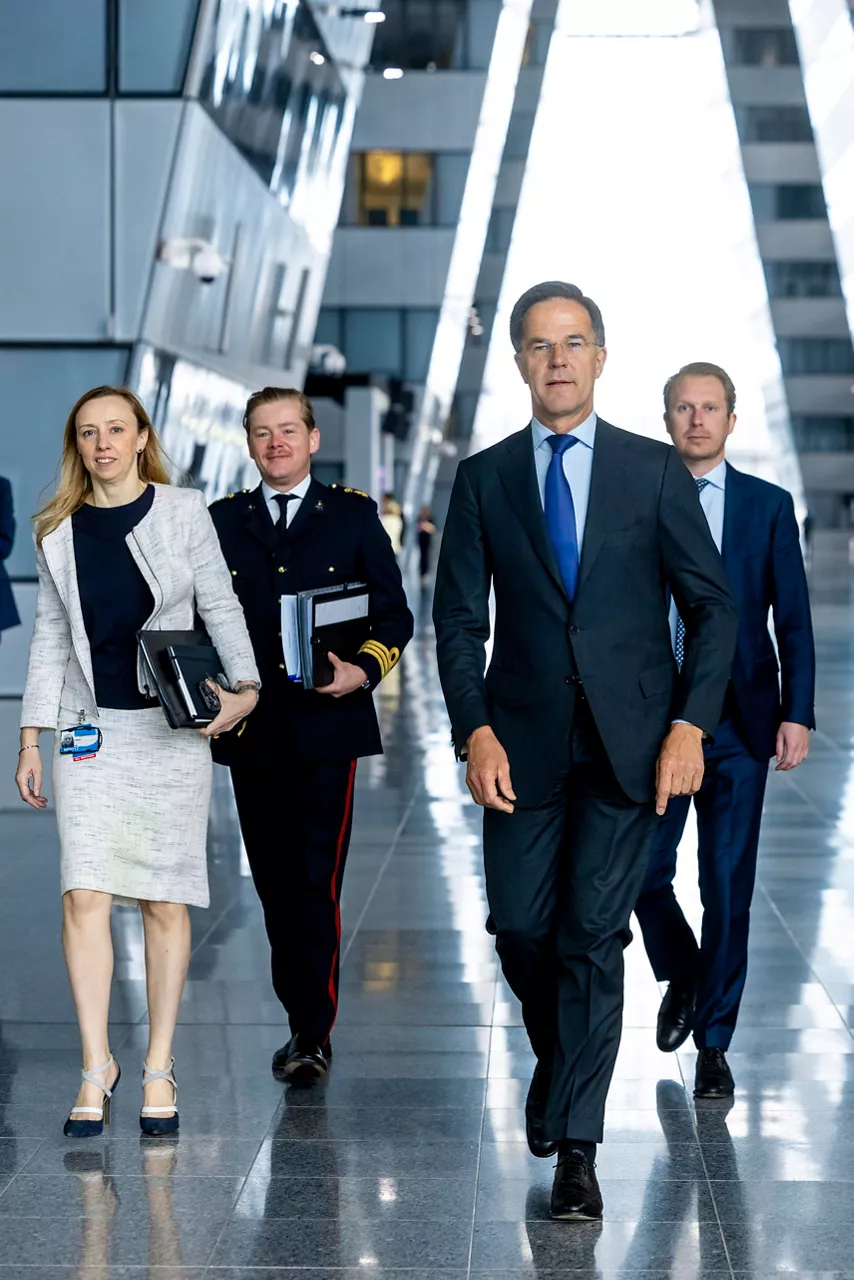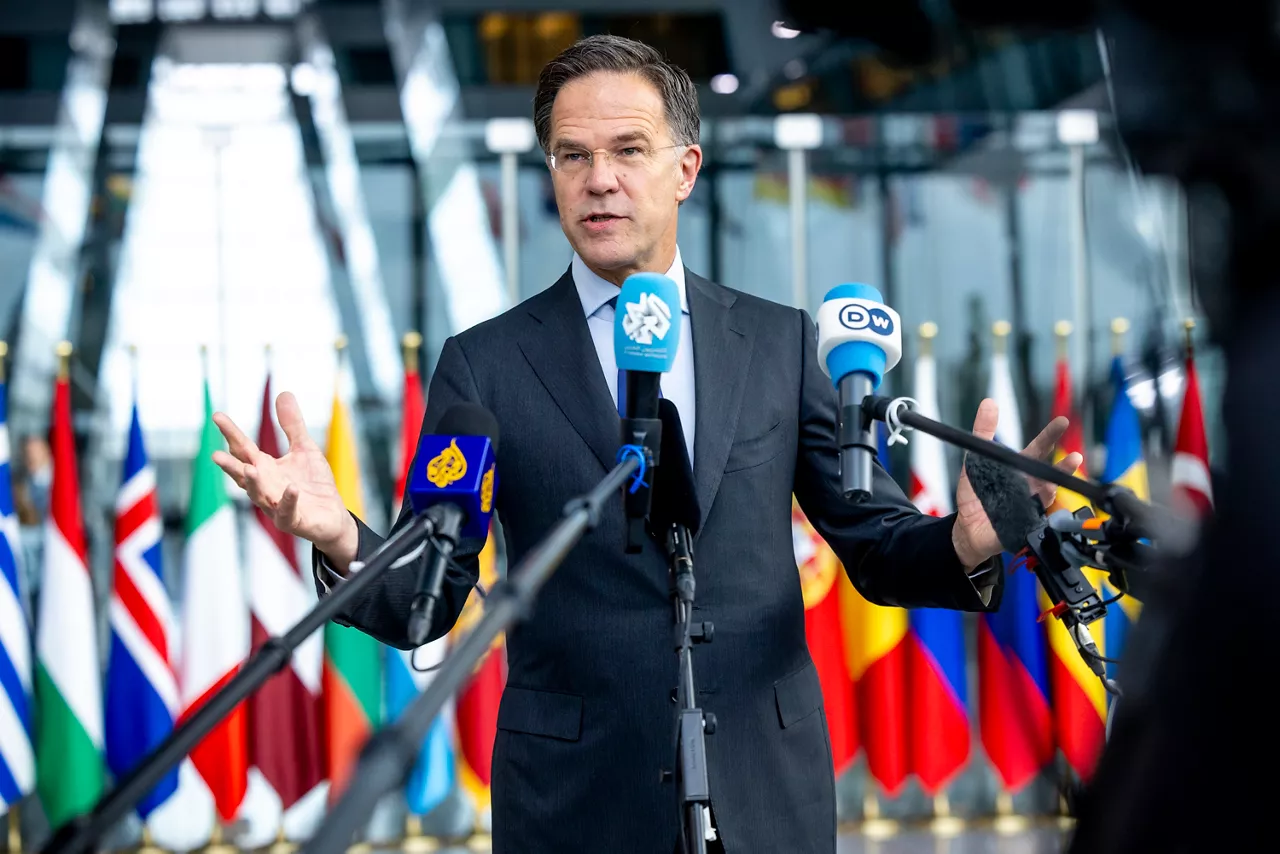Download NATO’s broadcast-quality video content free of charge

Log in
NATO MULTIMEDIA ACCOUNT
Access NATO’s broadcast-quality video content free of charge

Check your inbox and enter verification code
You have successfully created your account
From now on you can download videos from our website
Subscribe to our newsletter
If you would also like to subscribe to the newsletter and receive our latest updates, click on the button below.
Enter the email address you registered with and we will send you a code to reset your password.
Didn't receive a code? Send new Code
The password must be at least 12 characters long, no spaces, include upper/lowercase letters, numbers and symbols.
Your password has been updated
Click the button to return to the page you were on and log in with your new password.
(As delivered)
This will be an important meeting of defence ministers. It is the last big meeting we will have before the Summit in The Hague and today is really key, because we will decide on the capability targets, and this is an important building block to decide on the money we are going to spend in the coming years on defence. So I'm really excited about today's meeting. It's my prediction that we will agree on these capability targets. Of course, we will discuss many other issues, but this is a key building block up to The Hague to make sure that in The Hague, we will have a commitment on more spending, on more production, of course, our support for Ukraine, and speaking about Ukraine, we will have a meeting with the Council, the NATO Ukraine Council, with the Defence Ministers during lunch. We will also have, of course, Defence Minister of Ukraine visiting, Rustem Umerov, and of course, Kaja Kallas, she is the High Representative of the European Union. So it will be a packed agenda today, and I hope to see you at the end for the closing press conference. But now I have time for a few questions.
Reporter - Can you mention more detailed capability targets that NATO has to fulfil to successfully deter and defend?
NATO Secretary General, Mark Rutte - Yes. So what we will do today is to decide, what do we need, to make it for us - to be able to whenever we would be attacked, to defend ourselves, and by being able to defend ourselves not being attacked. So as you know to prepare for war, spend more, and when you are really prepared for war, you will not be attacked. That will be a considerable extra investment. And this is why I predict in The Hague we will decide on a much higher spending target for all the Nations in NATO, because we have to invest in our air defence systems. We have to defend. Invest in our, let's say, long range missiles we have to defend. Invest in our manoeuvrable land formations, command and control systems. All of this has to happen, and this, these mean huge investments we need, all over NATO territory. And by the way, doing this will also equalize what we are spending with what the United States is spending. We, Canada and Europe, equalizing with the US. We know this is important, because we want a fair NATO where all allies spend the same.
Reporter – [Question partially inaudible] Are you disappointed that the visit of your United States’ colleague is brief?
NATO Secretary General, Mark Rutte
No, I'm not, because it is not about the number of visits or how many meetings, etc. It is about the commitment. And the commitment of the US and Pete Hegseth, and the President, to NATO, to our joint commitments, is ironclad.
Reporter - One of the Ministers we heard from yesterday said that 2032 is simply too late as a deadline. Does he have a point?
NATO Secretary General, Mark Rutte - Well, we will have some debates over the coming weeks. And that's good, because in the end, this is a Democratic Alliance. We will decide with unanimity. And by the way, I will put out my proposal on the defence spending and the new plan this afternoon during the press conference. What I need today is this last building block, the capability targets as they will be agreed. Today, I will then inform you about my proposals for the Summit.
Reporter - Some NATO officials are calling this day an historic day due to the pledges that are being made on capabilities. This is historic. Is it even more important than the Hague Summit?
NATO Secretary General, Mark Rutte - Very good question. I'm so happy that you asked that question, because sometimes people are thinking in The Hague will discuss a percentage of GDP spent on defence. As if this is something we pluck from the air. That is not true. What we will decide in The Hague, what we will spend on defence going forward, the new defence investment plan, of course, is rooted in what we need in terms of the hard capabilities. So that's why it's so important that today we decide on the capability targets. From there, you will assess the gaps we have, not only to be able to defend ourselves today, but also three, five, seven years from now. And all these investments have to be financed, and that is what we will do in The Hague. So this is really a two step approach today. The capability targets that will inform you, give you the routing, let's say, the basis to build on to have a strong discussion on spending, which is then rooted in the decisions we take today with the defence ministers. Last question, then I'll see you this afternoon.
Reporter - What gaps does NATO have?
NATO Secretary General, Mark Rutte
Well, I mentioned a few, but of course, we are not going to make Putin or any other country which might want, one day, try something against us, more wiser than he is today. But I mentioned a few big ones, the air defence systems, the manoeuvrable land formations, long-range missiles, command and control systems, etc, etc. We will meet later today. Thank you so much.


